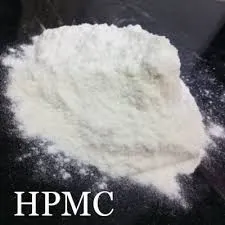
Oct . 18, 2024 06:28 Back to list
propyl methyl cellulose
Exploring Propyl Methyl Cellulose Properties and Applications
Propyl methyl cellulose (PMC) is a versatile and valuable polymer derived from cellulose, widely recognized for its unique properties and numerous applications across various industries. This chemically modified cellulose is synthesized through the reaction of cellulose with propylene oxide and methyl chloride, resulting in a compound that boasts a range of functional characteristics.
One of the standout features of propyl methyl cellulose is its excellent solubility in organic solvents and water. Depending on the degree of substitution, PMC can be dissolved in cold or hot water, providing formulators with flexibility when developing products. This property makes it an essential ingredient in numerous formulations, from pharmaceuticals to food products and industrial applications.
In the pharmaceutical industry, propyl methyl cellulose is employed as a binder, thickening agent, and film-forming agent in tablet formulations. Its ability to form gels in the presence of water enhances the release characteristics of active pharmaceutical ingredients (APIs). Additionally, PMC’s non-toxic and biocompatible nature makes it a preferred choice for developing controlled-release drug delivery systems, which can significantly improve therapeutic outcomes.
In food applications, propyl methyl cellulose is often used as a food additive, designated as E465 in Europe. It functions primarily as a thickener, stabilizer, and emulsifier. The inclusion of PMC in food products enhances texture, improves mouthfeel, and increases shelf life. Its ability to retain moisture makes it particularly useful in low-fat and gluten-free products, where it helps replicate the texture and consistency typically provided by fats and gluten.
propyl methyl cellulose

The construction industry also benefits from propyl methyl cellulose, particularly in tile adhesives, plasters, and paints. Its water-retention properties ensure that construction materials remain workable over extended periods, allowing for better adhesion and fewer shrinkage cracks. Furthermore, its thickening capability helps create a consistent and high-quality application.
Another important characteristic of PMC is its thermal stability. It can withstand a wide range of temperatures, making it ideal for processes that require heat. This stability, combined with its film-forming ability, allows for its use in coatings and films, providing an efficient barrier against moisture and contaminants.
The cosmetic industry has also adopted propyl methyl cellulose for its thickening and stabilizing properties. It is commonly found in creams, lotions, and gels, contributing to product viscosity and enhancing the overall sensory experience for consumers.
In summary, propyl methyl cellulose is a multifunctional polymer with a wide array of applications across various sectors. Its solubility, binding capabilities, thermal stability, and safety profile make it an invaluable ingredient in pharmaceuticals, food, construction, and cosmetics. As demand for innovative and sustainable materials grows, the importance of PMC is set to increase, highlighting the need for continued research and development in this dynamic field.
-
Versatile Hpmc Uses in Different Industries
NewsJun.19,2025
-
Redispersible Powder's Role in Enhancing Durability of Construction Products
NewsJun.19,2025
-
Hydroxyethyl Cellulose Applications Driving Green Industrial Processes
NewsJun.19,2025
-
Exploring Different Redispersible Polymer Powder
NewsJun.19,2025
-
Choosing the Right Mortar Bonding Agent
NewsJun.19,2025
-
Applications and Significance of China Hpmc in Modern Industries
NewsJun.19,2025







